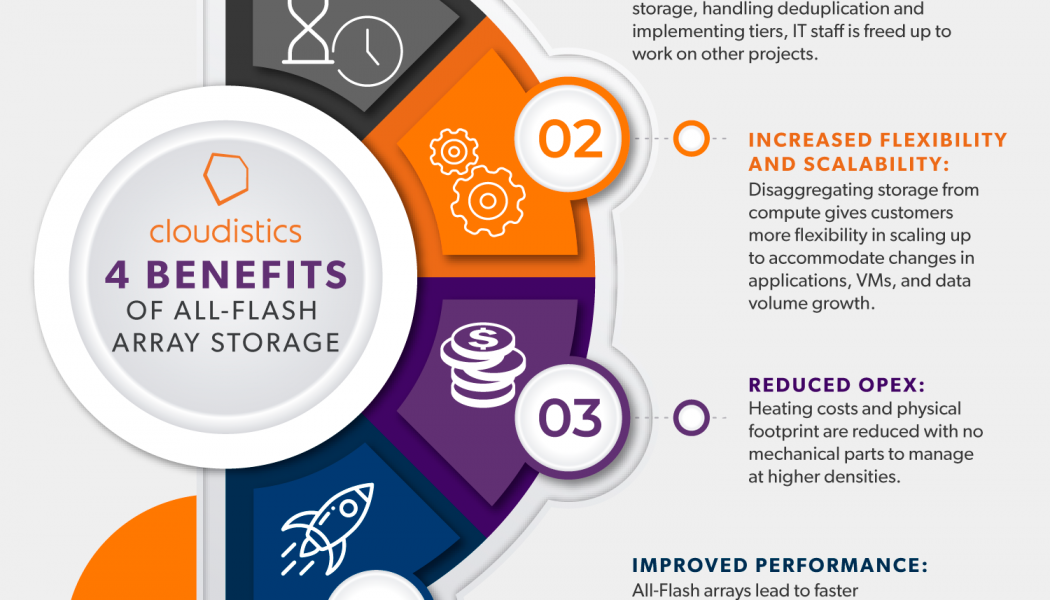Data Storage
Why Data Compliance is Critical for Your Business
The regulatory environment is a complex one that impacts all facets of a business. And if dealing with the continually evolving South African compliance landscape is not challenging enough, companies must also keep in mind new EU regulations that can also affect them even if they do not have operations there. Much of this comes down to how data is managed, the expectations of regulators, and how customers are influenced by this both locally and abroad. Every company, regardless of industry, uses data to improve engagement, enhance business processes, drive product innovation, and differentiate itself in a competitive market. As such, data must be managed as the mission-critical asset it is. This extends to policies, stewardship (as it pertains to the management and oversight of data), and ...
Addressing Data Storage Challenges in Healthcare Can Empower its Digital Transformation
Sourced from Getty Images. The healthcare industry has been one of the greatest beneficiaries of digital transformation in the last 12 months. Essential remote care services, critical real-time hyper-localised data in tracking pandemic trends, and the rapid rollout of a worldwide vaccine have been facilitated by digitalization. This growing reliance on digital operations brings with it vast amounts of data – according to IDC in May 2020, more than 59 zettabytes (ZB) of data would be created, captured, copied, and consumed in the world last year alone. This sudden and exponential increased digital demand has meant that the essential data infrastructure that healthcare relies on has come under enormous pressure and must handle critical data and workloads. At the same time, improvements in te...
Storing Data in the New PoPIA World
Sourced from Tapscape /* custom css */ .tdi_4_64f.td-a-rec-img{ text-align: left; }.tdi_4_64f.td-a-rec-img img{ margin: 0 auto 0 0; } With the Protection of Personal Information Act (PoPI Act or PoPIA) being enforced, more and more South African companies must reconsider their data storage location policy especially when a public cloud is in the picture. Thomas Dubus, VP EMEA at Aiven. Uncertainty with Cloud Storage Cloud companies are global entities–how would you know if your South Africa specific data was being sent to India or Spain for processing? /* custom css */ .tdi_3_c4d.td-a-rec-img{ text-align: left; }.tdi_3_c4d.td-a-rec-img img{ margin: 0 auto 0 0; } The answer is to check that the cloud provider can offer services in a geographically limited area. Many providers will in fact s...
Why You Should Use a RAID to Securely Store Video Surveillance Data
Image sourced from SourceSecurity.com A RAID (Redundant Array of Inexpensive – or Independent – Disks) is a specialized hardware configuration that offers a tremendous amount of versatility in its usage. Generally used for data storage and, more specifically, to achieve data redundancy, it’s useful in applications that require a large amount of data – such as surveillance. While full-scale surveillance systems were once reserved for large businesses and enterprises, their affordability, as well as the affordability of modern hard drives, now makes them a viable option for home use, too. But a digital home surveillance system requires a lot of data storage space as well as routine management and maintenance of that data – and that’s exactly where RAID comes in. RAID Configurations for Surve...
Enterprise Data Storage ‘business as usual’ with Tintri and Networks Unlimited
As the world grapples with a totally different business dynamic in the wake of the global lockdowns currently in place, the enterprise storage industry must continue showcasing the continuous innovation that enables compelling solutions for its clients. This, however, is not so easy for all players in the current economic downturn. This is according to a recent blog entry by Tintri, which provides AI-enabled intelligent infrastructure, and partners in South Africa with value-added distributor Networks Unlimited Africa. According to the blog, “Innovation and continuous investment therein are key drivers that enable compelling solutions to reach customers’ data centres. But in these extraordinary times business cannot operate as usual, and some vendors are finding their ability to maintain c...







